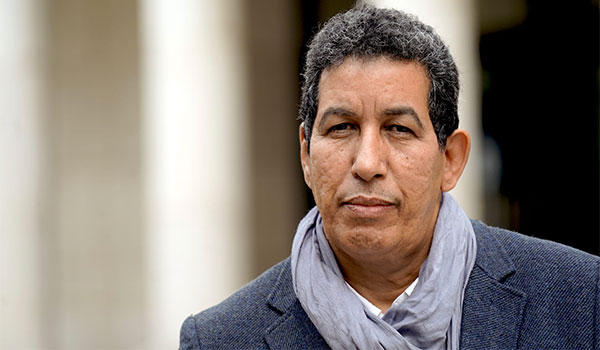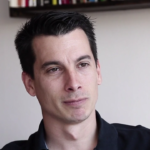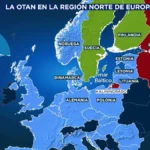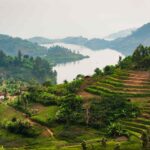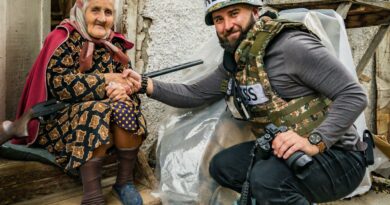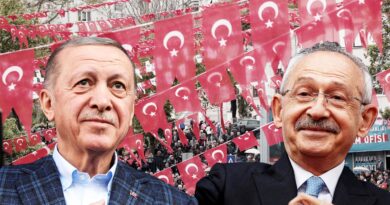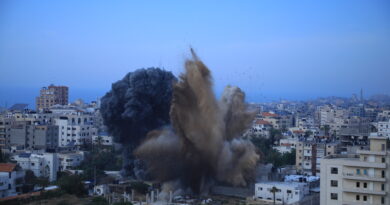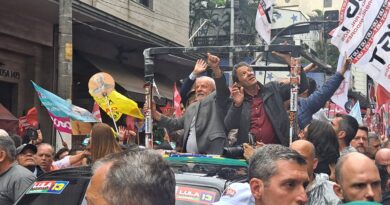Arabi: Rabat has exerted enormous pressure to condition the Spanish government
JAYRO SANCHEZ
The Polisario Front celebrates 50 years today since it was founded in Maurtinaia on May 10, 1973. We spoke with Abdulah Arabi, delegate of the front in Spain, about the situation in Western Sahara after the drastic change in the position of the Spanish Government, which in March 2022, he supported Morocco's position in the conflict. Arabi worked in the Saharawi Commission for the Referendum (COSAR) within the UN framework until 1995. Since then, he has held various positions of responsibility within the organization in Spanish territory.
A little over a year ago, President Pedro Sánchez sent King Mohamed VI the famous letter in which he recognized the autonomy plan proposed by Morocco for the Sahara as "the most serious, credible and realistic basis for resolving this dispute". . Why do you think he did it?
I think it is clear that this decision is a consequence of the policy of blackmail and manipulation that the Moroccan government has been exercising against Spain since the end of 2020, when former US President Donald Trump recognized his plans regarding Western Sahara.
As we have seen in recent months, Rabat has been exerting enormous pressure to condition the political position of the Spanish Executive through the unfortunate use of migratory flows and other similar strategies. And, in the end, he has managed to get President Sánchez to make that decision against the most elementary norms of international law.
The Sahara is a territory pending decolonization and Spain, which continues to be the power in charge of administering it, must organize an electoral process with guarantees in which the Saharawi people can exercise their right to self-determination.
Mr. Sánchez has broken with the traditional Spanish policy on this issue, and, from my point of view, the rejection of his position from the Cortes, civil society and other political parties is unanimous.
"IT IS NOT NORMAL FOR A DECISION OF THIS CALIBER TO BE MADE UNILATERALLY BY A PRESIDENT OF THE GOVERNMENT AND HIS FOREIGN MINISTER"
During the month of May, The Guardian reported that Morocco had tapped the mobile phones of Sánchez, his Defense Minister, Margarita Robles, and other senior officials with the Pegasus espionage program. Could Spain's change of position be linked in any way to these events?
According to the information that reaches us daily, it seems so. This matter is being analyzed in the European Parliament, but in Spain the creation of a commission to investigate it in depth has been avoided.
We are clear that there is a relationship between the two events, since it is not normal for a decision of this caliber to be taken unilaterally by a Prime Minister and his Minister of Foreign Affairs. Not even her coalition partners agree with her.
Furthermore, I have to insist on the idea that this new policy is not supported by international law or by the position held by the previous occupants of La Moncloa.
In July 2021, the president decided to renew his Cabinet. The former Minister of Foreign Affairs, Arancha González Laya, handed over her position to José Manuel Albares. Could this change of titles contain a deeper meaning?
As I said before, Morocco has been pressing Spain for almost three years to recognize its 'sovereignty' over the Sahara. Former Minister Laya always resisted this blackmail, and she placed the solution to our problem in the search for a multilateral agreement that complied with the requirements of international law and the UN.
It is unquestionable that the Moroccan government was not happy with the way Mr. Albares's predecessor carried out foreign policy, and we think that she let President Sánchez know that, for the two countries to maintain good relations, another person had to take charge of the Ministry.
The fact is that his response announcing the formation of a new Council of Ministers constituted a transfer that has forced him to admit more advantageous proposals for Rabat over time. And the results are in sight: there is no tangible progress regarding the new 'road map' between the two countries.
On the other hand, Morocco knows that the Sahara is, by legal definition, a territory pending decolonization and that the claims it exercises over its sovereignty lack legal grounds. In addition, she is aware that time is running out because the current US president, Joe Biden, has not followed the policy of the previous administration in North Africa. That is why he is putting so much pressure on Spain.
Laya does not belong to any party in the ruling coalition, although she declares herself a progressive ideology. At the time of her, she was heavily criticized for allowing the leader of the Polisario Front, Brahim Gali, to enter Spain for hospital treatment. Could this decision cost you the position?
I would say no, since the entry of our president into Spanish territory was supported by the other members of the Executive and consisted of an action consistent with the humanitarian care policy that has been developed in this country by governments of all colors since the 1980s. In fact, it had already been applied to other leaders of the Polisario Front.
"WE BELIEVE THAT THE WORK OF THE CURRENT FOREIGN MINISTER IS VERY PRONE TO MOROCCO'S CLAIMS"
Minister Albares is one of President Sánchez's trusted men and his adviser on international affairs for years. Was he ratified in the Foreign Ministry so that he could carry out a diplomatic turn towards the US?
It is not up to us to assess the internal decisions of the Government of Spain, but we believe that the work carried out by the current Minister of Foreign Affairs is very prone to the claims of Morocco. We understand that he believes that it is necessary to establish good neighborly relations with this country, but we think that these must be compatible with the demand for compliance with international law and respect for human rights.
At the end of 2020, the Polisario Front declared the ceasefire agreement declared in 1991 between the Saharawi and Moroccan forces to be broken. Because?
You have to understand that we have endured this situation for 29 years. We have always wanted a peaceful solution based on holding a referendum on self-determination, but we have also warned many times that the failure of this path would lead to a return to war actions.
Two years ago, a group of Sahrawis went to demonstrate at a border gap that the Moroccan Executive had opened illegally in Guerguerat, between the occupied territory of Western Sahara and Mauritania, to transfer their merchandise and plunder our natural resources. Our fellow citizens were attacked by the occupation authorities and, therefore, we consider that they had broken the ceasefire.
“OUR INTENTION IS TO ESCALATE THE CONFLICT UNTIL FORCE RABAT TO NEGOTIATE OR EXPEL IT FROM THE OCCUPIED PART OF WESTERN SAHARA”
How would you describe the evolution of the confrontations since then?
Right now, we are developing a bullying war. The Moroccan Army is entrenched behind the wall that it has erected between the liberated and the occupied territories.
Our forces are the ones taking the initiative on the ground, but Morocco is using drones that bomb places populated by Saharawi, Algerian and Mauritanian civilians to demoralize us. These actions are prohibited by international law, which only allows the use of these devices in publicly declared and recognized wars.
Even so, we continue to fight. Our intention is to escalate the level of the conflict to force Rabat to negotiate or expel it from the occupied part of Western Sahara.
For some time, you have been denouncing to the international authorities an increase in the repression against the Saharawi people by the Moroccan military forces. What are they specifically accused of?
Of committing atrocious violations of human rights. See the case of the activist Sultana Khaya, who was confined to her own home for two years for the mere fact of hanging a flag of the Saharawi Republic on her roof... There are numerous reports written by international humanitarian organizations that speak of similar cases .
There is no doubt that the Sahrawis living in the occupied territories suffer constant social marginalization and all kinds of crimes. We want to denounce the silence that some members of the international community maintain regarding the situation of our countrymen, and we call on Mr. Albares to declare himself against this type of Moroccan action.
We also ask you to demand that the Spanish delegations that travel to the area are not expelled by the Moroccan authorities so that the people who make them up can check whether what we are denouncing is true or not.
“WE HAVE TRAINED NEW GENERATIONS WHO ARE READY TO TAKE OVER IN THE FIGHT”
Brahim Gali has recently been re-elected as the leader of your organization, but some of its younger members would also like access to the governing bodies and contribute new ideas and strategies. Do you share this vision?
Of course. The Polisario Front is a liberation movement that will celebrate the fiftieth anniversary of its birth on May 10. Although our fundamental objective is to achieve the independence of the Saharawi people, we have our concerns, worries and debates. We do not stop adapting to the current times, and that is why we have trained new generations who are prepared to take over in our fight.
Speaking of renewal, Spain will soon hold general elections. If the PSOE lost its seats and its leftist partners or the conservative opposition had the necessary votes to reach the presidency of the country, do you think Spain's support for the plan proposed by Morocco would be withdrawn?
We have total respect for the electoral results in all countries. What we are clear about is that, whoever is in charge of governing from this year on, we are going to continue to demand that they fulfill their obligations and responsibilities with respect to Western Sahara.

